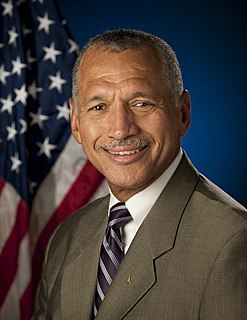A Quote by William Lane Craig
Okay, look at it this way: if the evening news has a very high probability of being accurate, then it's highly improbable that they would inaccurately report the numbers chosen in the lottery. That counterbalances any improbability in the choosing of those numbers, so you're quite rational to believe in this highly improbable event.
Related Quotes
It was Darwin's chief contribution, not only to Biology but to the whole of natural science, to have brought to light a process by which contingencies a priori improbable, are given, in the process of time, an increasing probability, until it is their non-occurrence rather than their occurrence which becomes highly improbable.
There is nothing in the nature of a miracle that should render it incredible:;: its credibility depends upon the nature of the evidence by which it is supported. An event of extreme probability will not necessarily command our belief unless upon a sufficiency of proof; and so an event which we may regard as highly improbable may command our belief if it is sustained by sufficient evidence. So that the credibility or incredibility of an event does not rest upon the nature of the event itself, but depends upon the nature and sufficiency of the proof which sustains it.
We'd all like to be in the business where we don't have to report our numbers, too. You're dealing with a Netflix and an Amazon that don't have to report their viewership. They're not sharing those numbers, so how do you work with a creative entity to renegotiate future seasons when nobody has metrics?
It is a special kind of enlightenment to have this feeling that the usual, the way things normally are, is odduncanny and highly improbable. G.K.Chesterton once said that it is one thing to be amazed at gorgon or a griffin, creatures which do not exist; but it is quite another and much higher thing to be amazed at a rhinoceros or a giraffe, creatures which do exist and look as if they don't. This feeling of universal oddity includes a basic and intense wondering about the sense of things.
It is quite true that many scientists, many physicists, maintain that the physical constants, the half dozen or so numbers that physicists have to simply assume in order to derive the rest of their understanding ... have to be assumed. You can't provide a rationale for why those numbers are there. Physicists have calculated that if any of these numbers was a little bit different, the universe as we know it wouldn't exist.
The impossible often has a kind of integrity to it which the merely improbable lacks. How often have you been presented with an apparently rational explanation of something that works in all respects other than one, which is just that it is hopelessly improbable? Your instinct is to say, 'Yes, but he or she simply wouldn't do that.
People who believe in God conclude there must have been a divine knob twiddler who twiddled the knobs of these half-dozen constants to get them exactly right. The problem is that this says, because something is vastly improbable, we need a God to explain it. But that God himself would be even more improbable.
The issue, as correctly emphasized by Carl Sagan, is the probability of the evolution of high intelligence and an electronic civilization on an inhabited world. Once we have life (and almost surely it will be very different from life on Earth), what is the probability of its developing a lineage with high intelligence? On Earth, among millions of lineages of organisms and perhaps 50 billion speciation events, only one led to high intelligence; this makes me believe in its utter improbability.






































